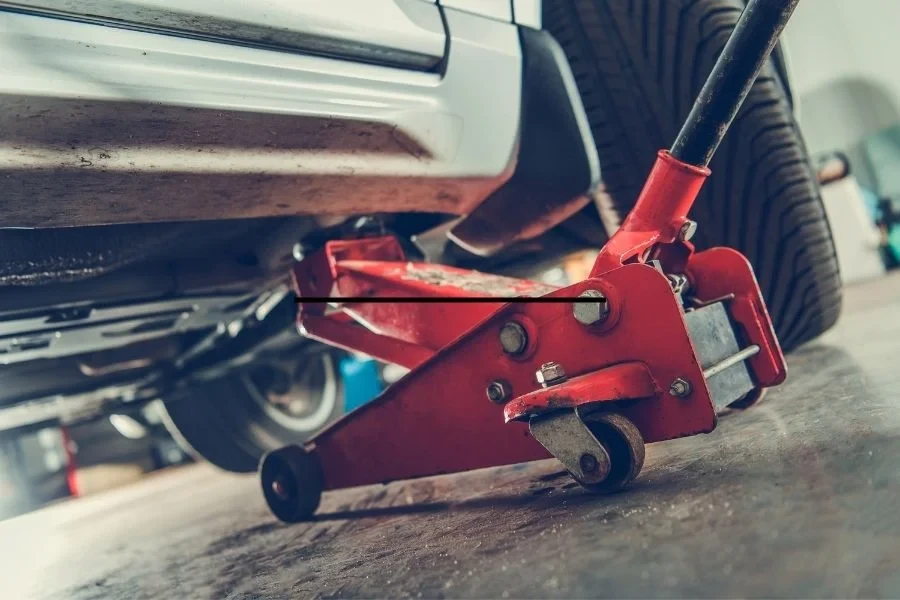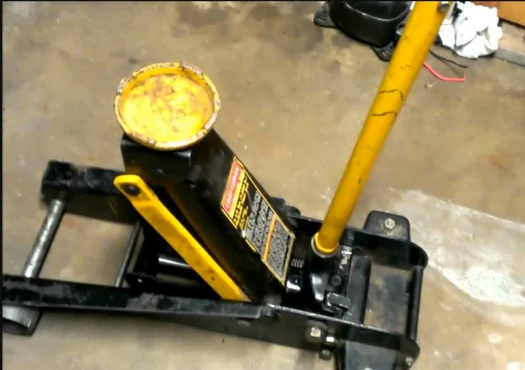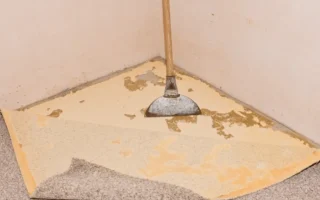Are you a DIY enthusiast or an automotive fan who loves thinking with cars? Well, if you are, you already know the importance of having a reliable floor jack in your garage. A floor jack is an indispensable tool when lifting heavy vehicles for maintenance or repairs. But, like any other mechanical device, a floor jack requires proper maintenance to ensure optimal performance. One essential aspect of maintaining your floor jack is bleeding it regularly. Here, we will discuss the world of floor jacks and explore the process of bleeding them to keep them functioning smoothly and safely.
Understanding how a floor jack works
Floor jacks are essential tools for lifting vehicles effortlessly. They consist of a hydraulic pump, cylinder, and release valve mechanism. When the pump handle is operated, hydraulic fluid is forced into the cylinder, causing it to rise and lift the vehicle off the ground.
The hydraulic system works on Pascal’s principle – pressure applied to a confined fluid is transmitted undiminished in all directions throughout the fluid. This allows even heavy vehicles to be lifted with relative ease using a floor jack.
You can control how quickly or slowly the jack lowers your vehicle back down by manipulating the release valve. It’s essential to understand how this mechanism functions to ensure your floor jack’s safe and effective use during maintenance or repairs on your car.
Regular maintenance, such as bleeding your floor jack, helps maintain its efficiency and safety levels by removing any air bubbles that may have accumulated in the hydraulic system over time.
Signs that your floor jack needs bleeding

One sign that your floor jack needs bleeding is if it’s struggling to lift loads as smoothly as before. If you notice the handle takes more effort to pump, or the lifting action feels jerky and uneven, it could indicate air in the hydraulic system.
Another red flag is if your floor jack starts leaking fluid. Check for any visible oil spills around the base of the jack or on the cylinder. This could signal internal pressure issues that may require bleeding to resolve.
Watch for unusual sounds like hissing or squeaking when operating the jack. These noises can suggest air trapped in the hydraulics, affecting its performance.
Steps to bleed a floor jack
To bleed a floor jack, you must release any trapped air bubbles affecting its performance. Start by locating the bleeder valve on your floor jack, typically found near the hydraulic oil reservoir.
Next, position the floor jack on a flat, stable surface to ensure safety during bleeding. Before starting, ultimately lower the saddle and remove any load from the jack.
Using a wrench or socket that fits snugly around the bleeder valve, slowly loosen it in a counterclockwise direction. Be prepared for some hydraulic fluid or air to escape once you start loosening.
Now, pump the floor jack handle several times to build pressure within the system. Keep an eye out for any air bubbles escaping through the bleeder valve.
Once only clear hydraulic fluid is coming out without any air bubbles, tighten back up the bleeder valve securely in a clockwise direction.
Safety precautions when bleeding a floor jack

Safety precautions are crucial when bleeding a floor jack to ensure a smooth and safe process. Always make sure the floor jack is on level ground before starting. This will prevent any unexpected movements or accidents during the bleeding procedure.
It’s essential to wear appropriate safety gear, such as gloves and goggles, to protect yourself from any potential spills or splashes of hydraulic fluid. Never attempt to bleed a floor jack alone – having someone nearby for assistance can be invaluable in an emergency.
Before beginning the bleeding process, double-check that the floor jack is securely positioned and stable. Any instability could lead to dangerous situations while working underneath a vehicle. Follow the manufacturer’s instructions carefully and use the proper tools for bleeding your specific type of floor jack.
Common mistakes to avoid
When bleeding your floor jack, avoid rushing through the process. Take your time to ensure each step is done correctly for optimal performance. One common mistake is to use the correct type of hydraulic fluid recommended by the manufacturer. Using the wrong fluid can damage your floor jack.
Another mistake to avoid is overfilling or underfilling the hydraulic reservoir during bleeding. Follow the manufacturer’s guidelines on proper fluid levels to prevent malfunctions. Failing to release air bubbles entirely from the system can lead to spongy operation and potential safety hazards.
Pay attention to regular maintenance and bleeding of your floor jack. Consistent upkeep will prolong its lifespan and maintain its efficiency. Never overlook checking for leaks before and after bleeding to prevent accidents or damage to your equipment.
Benefits of regularly bleeding your floor jack
Regularly bleeding your floor jack has many benefits that can enhance its performance and longevity. By removing any air bubbles or contaminants from the hydraulic system, bleeding ensures smooth operation when lifting heavy loads. This process helps maintain the proper pressure levels within the jack, preventing issues like sudden drops or loss of stability during use.
Properly bled jacks also offer increased safety by reducing the risk of malfunctions or accidents while working underneath a vehicle. The improved efficiency achieved through bleeding allows for easier maneuvering and positioning of the floor jack, making it more convenient to use in various automotive tasks.
Bleeding your floor jack regularly can extend its lifespan by preventing wear and tear on internal components due to air pockets or impurities in the hydraulic fluid. It ultimately saves you time and money by avoiding costly repairs or replacements. Regular maintenance is vital to keeping your equipment functioning at its best!
Conclusion
Regularly bleeding your floor jack is a simple yet essential maintenance task that can prolong the lifespan and ensure the proper functionality of your equipment. By following the steps mentioned in this article and being mindful of safety precautions, you can easily bleed your floor jack at home.
A well-maintained floor jack operates smoothly and enhances safety while working on vehicles or other heavy objects. So, make it a habit to bleed your floor jack regularly to keep it in top condition and avoid any potential accidents or malfunctions.




